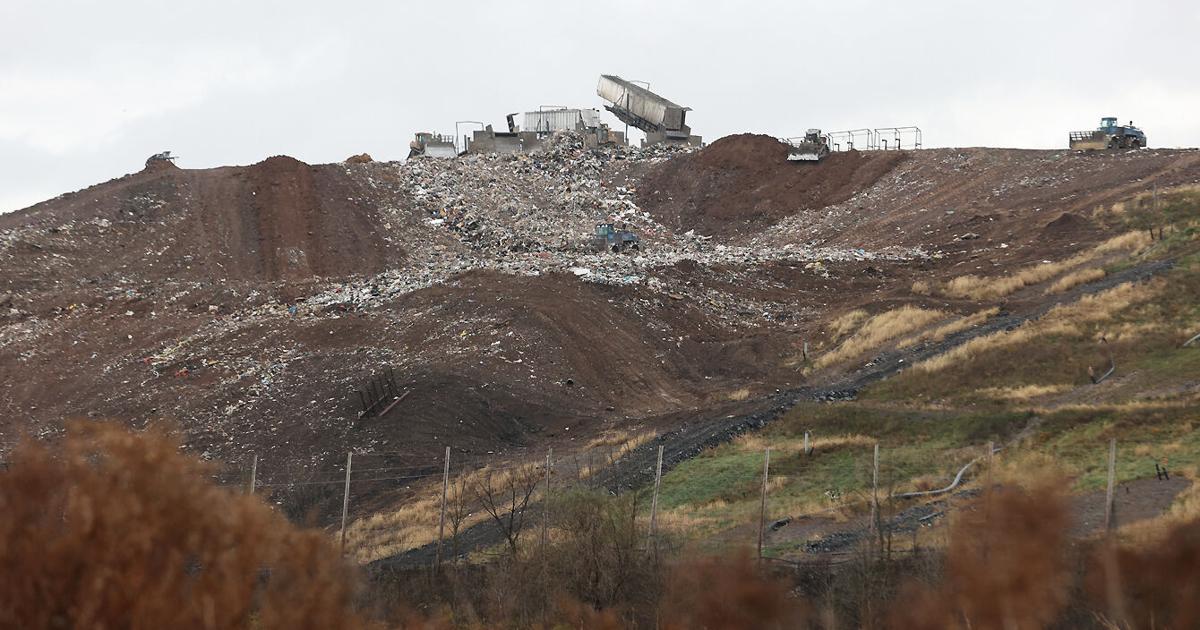SENECA FALLS — A coalition of environmental groups claims landfill leachate containing PFAS, the so-called “forever” chemicals, is polluting the drinking water of approximately 368,000 state residents.
The groups, in a letter to interim Department of Environmental Commissioner Sean Mahar, urge the state to impose tougher regulations on leachate treatment at Seneca Meadows and other state landfills.
Seneca Meadows, a private landfill on Route 414 owned by Texas-based Waste Connections, is the largest landfill in the state. Its permit allows it to accept up to 6,000 tons of waste per day. Its current permit expires Dec. 31, but SMI has applied for an upward expansion that could keep it open until 2040.
The letter to Mahar calls on the DEC to adopt new regulations for on-site treatment and disposal of landfill leachate “to protect public health and drinking water sources.” The letter calls for the DEC to open the rule-making process immediately, with a 90-day public comment period, stressing the urgent need for new regulations to promote public health and the environment on untreated leachate being sent to municipal wastewater treatment plants.
The letter claims municipal wastewater treatment systems are not required to test for or remove the toxic chemicals in leachate, such as heavy metals, PFAS, and other contaminants, allowing them to be untreated and discharged into rivers that serve as drinking water sources. Leachate is the liquid that gathers at the bottom of a large pile of buried waste, created by rain water and snow filtering through the buried waste, collecting contaminants as it flows downward into collection ponds.
Seneca Meadows and the Ontario County Landfill have collection tanks that store leachate prior to removal for transport to wastewater treatment plants. SMI has a reverse osmosis system in place to remove contaminants prior to being added to the town of Seneca Falls sanitary sewer system along Route 414. SMI District Manager Kyle Black said some of the leachate produced each day goes through the reverse osmosis system, while the rest is trucked offsite.
SMI’s 2024 annual report to the DEC stated that the landfill produced 58.2 million gallons of leachate, 18.7 million gallons of which went through the reverse osmosis process. The Seneca Falls wastewater treatment plant received 9.7 million gallons of leachate in 2024. The majority — 24 million gallons — went to Buffalo, while 15.2 million gallons was taken to Watertown.
Seneca Meadows has four leachate collection tanks, ranging in size from 40,000 to 1.7 million gallons.
In 2012, the Seneca Falls Town Board approved an agreement with Seneca Meadows to allow its pretreated leachate to go to the town wastewater treatment plant. That agreement was for an initial term of four years, with automatic renewal for two-year terms unless either party provided notice to the other that they do not wish the contract to renew by July 1 in the year prior to the termination date.
In May 2024, the board voted unanimously to notify SMI the town does not wish the leachate agreement to renew automatically again.
The environmental groups’ letter highlights the need for immediate action to protect drinking water supplies, ensure accountability, and implement updated waste-management practices. It also calls for a new waste-management regime that prioritizes public health and the environment, while shifting the cost burden from municipalities back to the waste facility operators.
Seneca Lake Guardian, Beyond Plastics, Riverkeeper, Hudson River Sloop Clearwater, Scenic Hudson, Earthjustice, Sierra Club Atlantic Chapter Natural Resources Defense Coalition, Pace Environmental Litigation Clinic, Catskill Mountainkeeper and others signed the letter. The signers say the push for new regulations follows the December 2024 release of the report “The Threat of Landfill Leachate to Drinking Water in the Hudson and Mohawk Rivers.” That report highlights the “leachate loophole,” a regulatory gap that allows raw leachate to be sent to municipal treatment plants that are unable to treat it properly.
